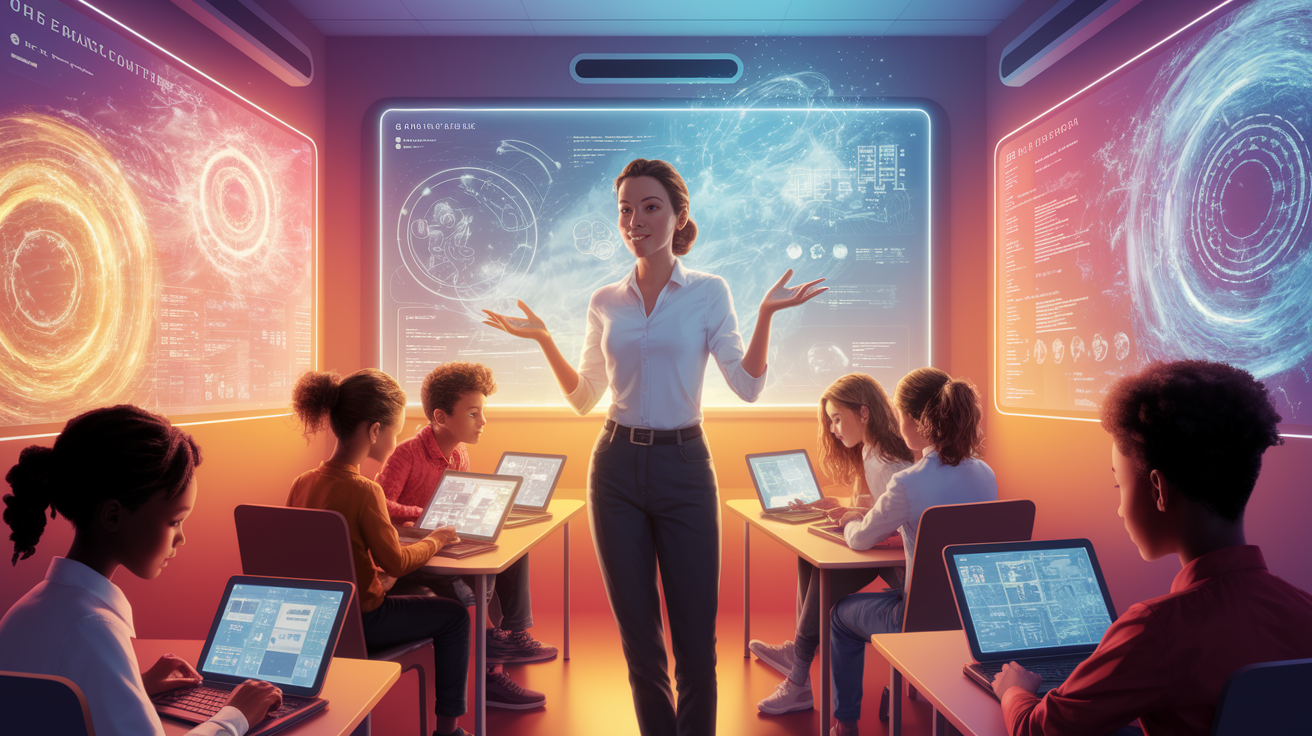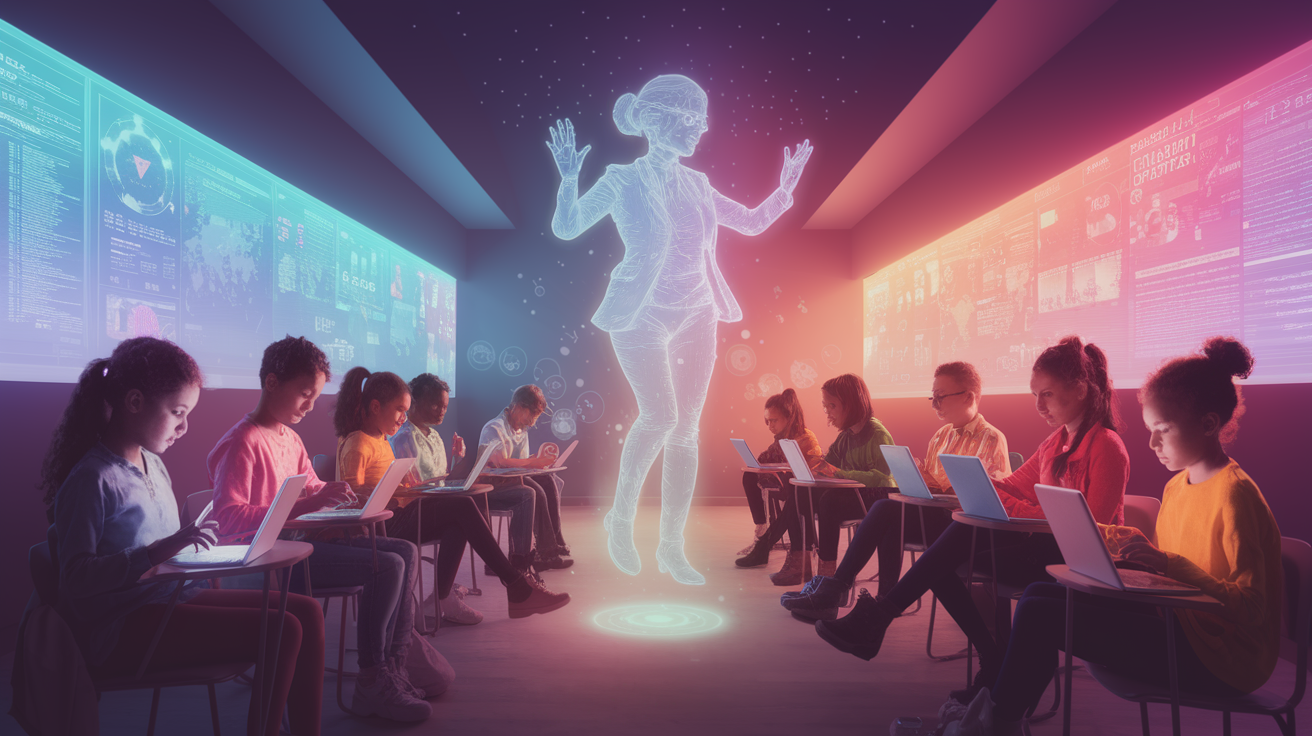Digitalization has transformed the educational sector and the continuous education market into a dynamic field where new technologies dictate the rules. Investors and individuals face the challenge of understanding the opportunities and risks of this transformation. While the educational sector is struggling with the integration of EdTech and AI, the continuous education market opens new horizons with e-learning and blended learning. This development promotes the concept of lifelong learning, essential for personal and economic development.
Digitalization as a Driver of the Educational Revolution: Opportunities and Challenges of Integration

The digital transformation has catapulted the educational sector into a new era of efficiency and flexibility. At the heart of this development are the opportunities offered by optimized accessibility and personalized learning experiences through the use of technologies such as artificial intelligence (AI). Improved access through digital education enables even rural and remote areas to consume educational content that was previously hard to reach. This proves to be an essential advantage in promoting equal opportunities globally.
In addition to improved accessibility, the revolution in education also lies in personalization. AI and other advanced technologies allow teachers to customize learning paths. Students can explore content at their own pace and according to their specific needs and abilities, leading to a deeper and more lasting learning experience. These technological interventions also promise cost efficiency by streamlining administrative processes and optimizing the management of educational resources.
However, despite these enticing opportunities, the educational sector faces significant challenges as well. One central obstacle is the technical infrastructure. The lack of adequate equipment and internet connections in many schools hinders the implementation of digital education strategies. The issue of data security and privacy protection is also prominent. The large amount of personal data processed by digital learning platforms requires stringent security measures to ensure user trust.
Moreover, continuous in-depth training for teachers is also necessary. Rapid technological advancements are not trivial, and many teachers need training and support to effectively integrate these new tools into their teaching. This educational need requires new strategies for school-based continuous training, which should include not only technological training but also psychological and pedagogical adaptation.
In general, it is perceived that the integration of digitalization into the educational sector cannot be achieved solely through technological investments. A holistic strategy is needed that also addresses the need to overcome social and infrastructural barriers to fully exploit the potential of digital education and promote sustainable developments in the context of lifelong learning.
Revolutionizing the Continuous Education Market: Unleashing the Power of Digitalization

Digitalization has radically transformed the continuous education market, making learning more dynamic and adaptable. These changes extend to methods, content, and the essential skills now needed for professional success. E-learning and blended learning are not just buzzwords; they have become indispensable tools that allow students to make their educational journey more flexible. These formats not only offer time and space freedom but also enable tailoring educational content to individual needs.
A fundamental aspect that digitalization highlights is the increasing need for digital skills. In an era where technology rapidly pervades all aspects of life, it is alarming that according to recent studies, only 49% of the German population possesses basic digital skills. This discrepancy poses a challenge for the continuous education market, which must develop programs that can close this gap. The emergence of artificial intelligence (AI) plays a key role, offering personalized learning paths and simultaneously analyzing and optimizing individuals’ learning curves.
The concept of lifelong learning is increasingly supported by businesses that recognize that continuous training is the key to innovation and adaptability in a rapidly changing world. Digitalization is the driving force behind this development, continually launching new technologies and needs, making lifelong learning the norm. The responsibility of businesses goes beyond merely offering learning opportunities; they must also create a cultural infrastructure that establishes continuous training as a work priority.
Finally, the general education system also plays a significant role in imparting digital skills. Schools and universities have a crucial role in preparing students and college students for the digital challenges of the future. Access to digital tools and programs is just as essential as integrating digitalization into curricula.
In summary, digitalization offers enormous opportunities in the continuous education market, while also presenting challenges that can only be addressed through cooperative efforts between the business world and the education system. Creating a future-oriented educational landscape requires a willingness to embrace change and ongoing innovation.